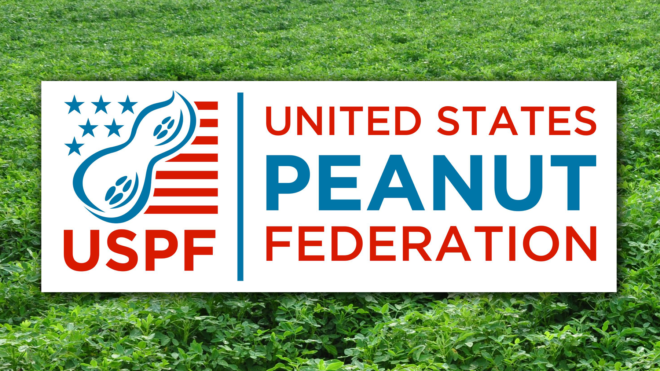Released: Nov. 27, 2024
Washington, D.C. – Representatives from the U.S. Peanut Federation (USPF) traveled to Washington, D.C. last week to advocate for assistance needed before the end of this year. During the trip, USPF representatives met with Members of the U.S. House of Representatives and U.S. Senate, as well as senior agricultural staff, to engage in discussions on economic assistance, natural disaster assistance and the Farm Bill.
In November 2023, the U.S. House of Representatives and U.S. Senate passed a 1-year extension of Farm Bill programs at the same levels authorized in the 2018 Farm Bill. This extension expired on Sept. 30, 2024, and some federal programs became unavailable. Crop insurance, primary nutrition, disaster, and other programs have been enacted as permanent law and access to federal assistance will remain available.
Congress returned to session on November 12, and it is anticipated there is an opportunity to include both agricultural economic assistance and disaster assistance in the final appropriations legislation during the Lame Duck session. Many commodity organizations are strongly encouraging a new Farm Bill, rather than another extension, although Congress is running out of time before the new year.
USPF representatives played a vital role in advocating for legislative initiatives during their meetings on Capitol Hill, addressing the need for economic assistance before 2025 due to the current extreme economic conditions and low probability, in many cases, of accessing loan services for the next crop year. Additionally, many southern growers were impacted by back-to-back hurricanes this year, only worsening their situation and increasing the need for financial support.
Chris Chammoun, executive director of the American Peanut Shellers Association, was one of the USPF representatives in attendance. “We had great visits on Capitol Hill and were glad members of Congress took the time to hear the concerns of the peanut industry,” he said. “We look forward to continuing to work with members to address the current needs of the industry.”
Joe Boddiford, chairman of the Georgia Peanut Commission, attended the trip to D.C. as well. “Times are hard back on the farm, and we haven’t seen an economic crisis like this since the early 1980s,” he said. “If financial assistance is not prompt, many farmers will be forced out of business and not be able to farm again.”
Carl Sanders, president of the Alabama Peanut Producers Association, joined in representing peanut growers from Alabama. “The economics of row crop agriculture has been tough for all growers, with many growers questioning how to continue farming in 2025,” he said. “With the season drawing to an end, this visit to D.C. was imperative to let our elected officials know how dire the situation is. The concern and interest in potential solutions we received from our legislators and staff from both sides of the aisle was palpable; everyone knows that food and fiber production is imperative to the safety and independence of the U.S.”
###
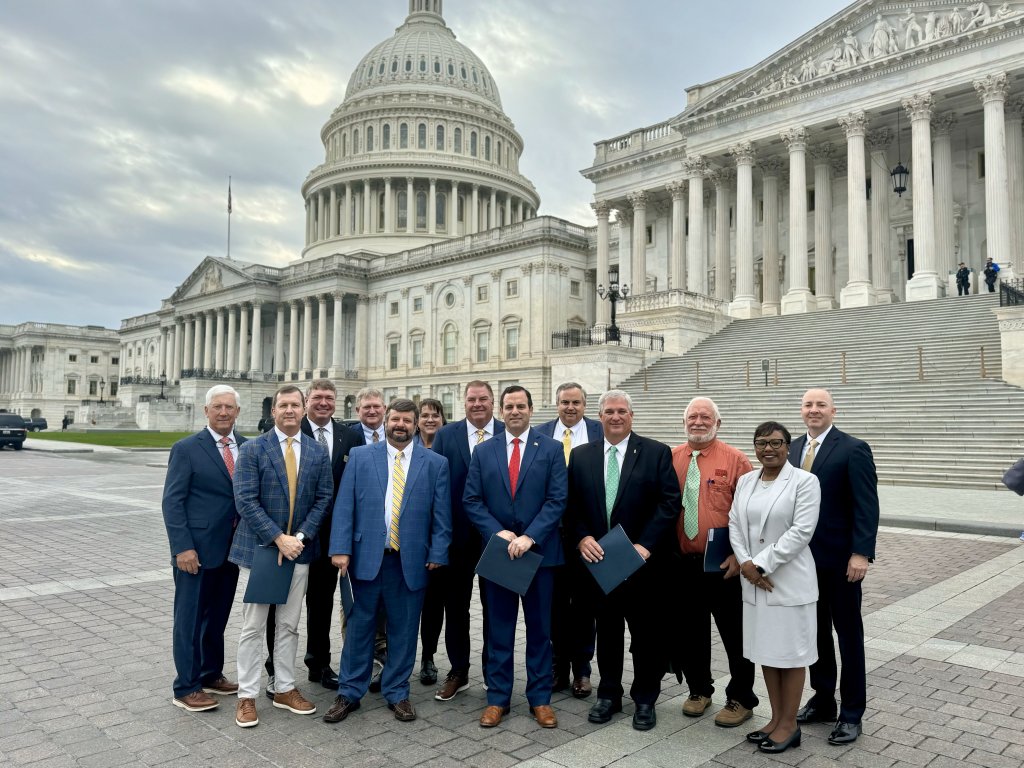
USPF Representatives pictured, left to right: Carl Sanders, Charles Birdsong, Thomas Adams, Lonnie Fortner, David Rushing, Libbie Johnson, Ross Kendrick, Chris Chammoun, Greg Sikes, Joey Williams, Joe Boddiford, Alfreda Sheppard and Jamie Brown.
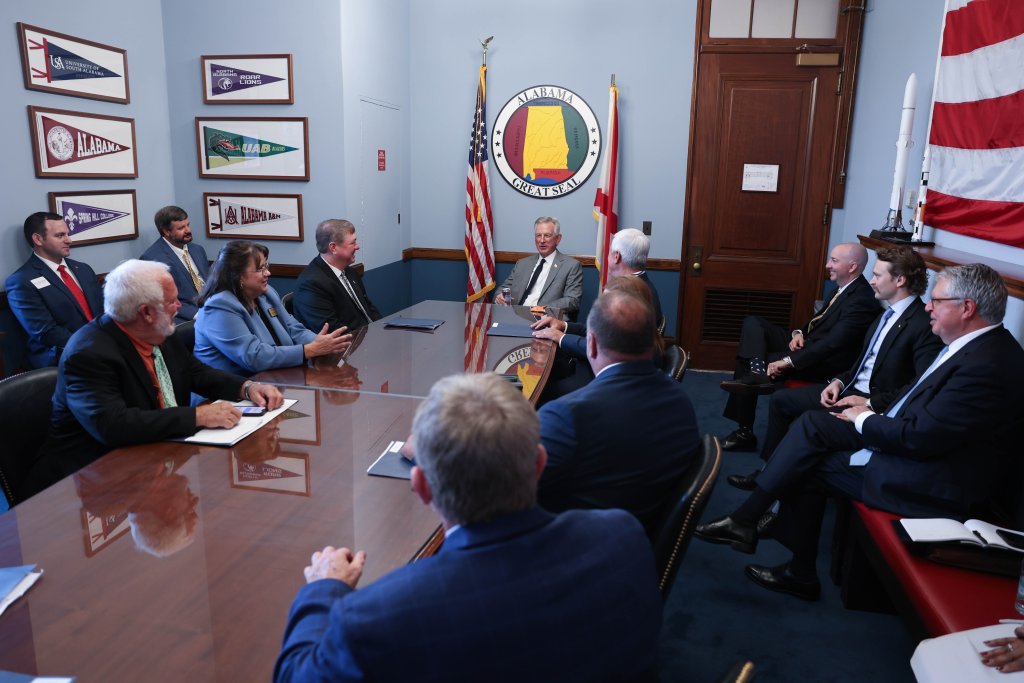
USPF representatives meet with U.S. Senator Tommy Tuberville, R-Ala.
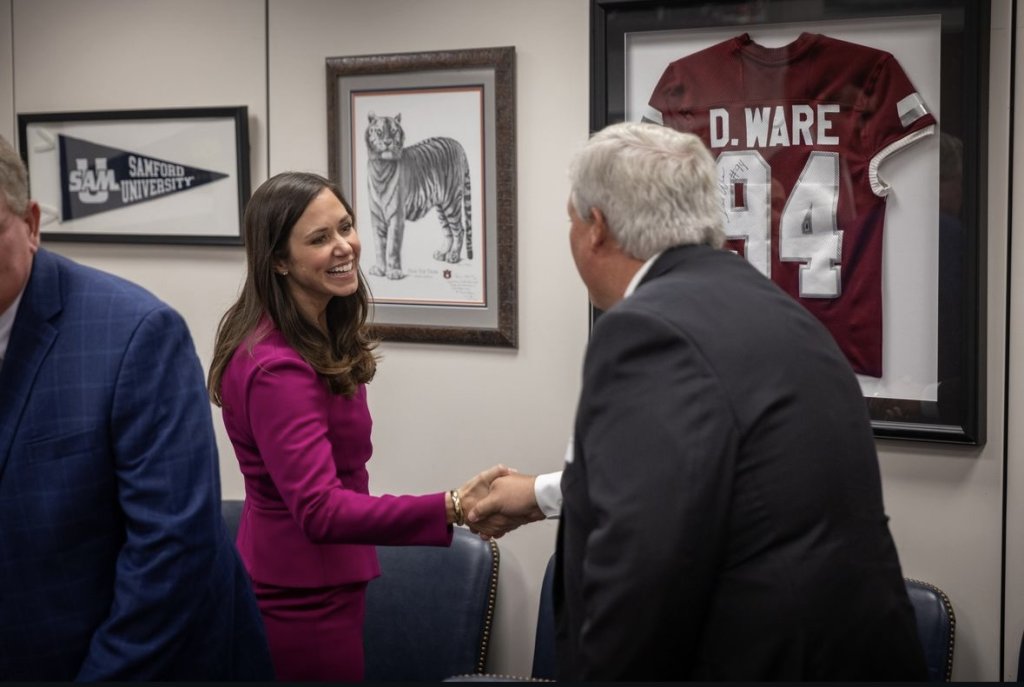
Joey Williams, USPF representative from Georgia, pictured meeting U.S. Senator Katie Britt, R-Ala.
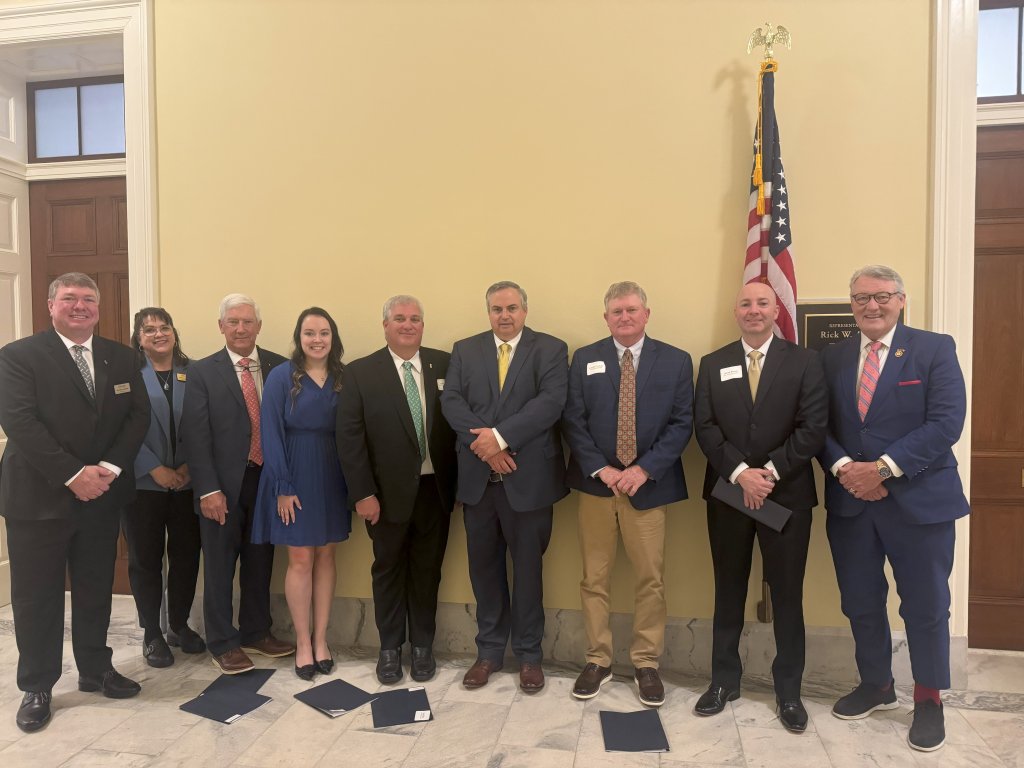
USPF representatives meet with U.S. Representative Rick W. Allen, R-Ga.
The United States Peanut Federation (USPF) is comprised of the Southern Peanut Farmers Federation, the American Peanut Shellers Association, and the National Peanut Buying Points Association. USPF serves as a unified voice in Washington, D.C. for all sectors of the peanut industry and advocates actively for strong agricultural policy.

